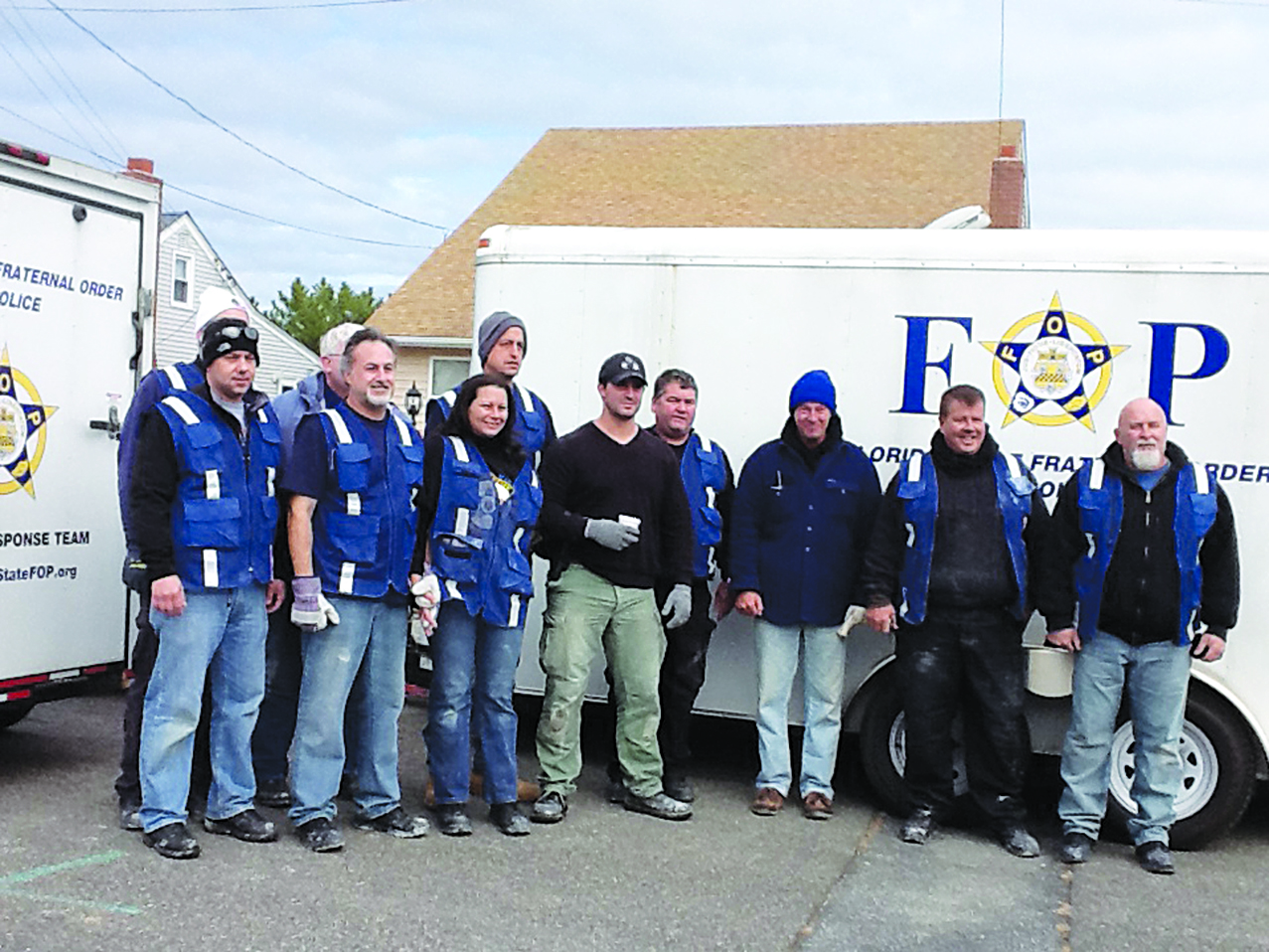Creating an FOP Response to Disasters

As FOP leaders, we should not focus our energy on the law enforcement response — that is our agency’s responsibility. We should focus our energy on helping our members and their families. In most cases, the officers working a disaster are not only first responders, they are also victims. They can’t effectively serve their communities at the time they are needed the most if their future is uncertain.
We can help them most effectively by accomplishing three tasks together:
- Providing food. Few people have long-term plans for the simple things like food and clothing and personal care products.
- Cleaning Debris. Help clean debris from members’ homes and mitigate flood damage when necessary, either by opening walls in flooded homes or patching damaged roofs. Note: This should be done under supervision of a qualified contractor.
- Lend a sympathetic ear. Our members who have just been through hell and back want to talk to someone who they know can relate to them — other cops.
- And finally, the No. 1 rule. To anyone thinking of creating a disaster relief team, here is the number one rule: When responding to a disaster, you must be self-contained. Agencies and our affected members have enough to deal with. They can’t help you help them! If they do, you may be causing more hardship than relief. So make that your mantra.
Human nature is to offer hospitality to visitors, especially when they are there to help. Thank them, but be selective with your acceptance of help. Remember, you are not a guest; you are there to help and make a difference. And when you do so, it will be a source of much personal pride knowing you made a difference in the lives of people when they needed it the most.
Look for “Recovery from the Storm” in the Spring 2013 issue of the Journal.




